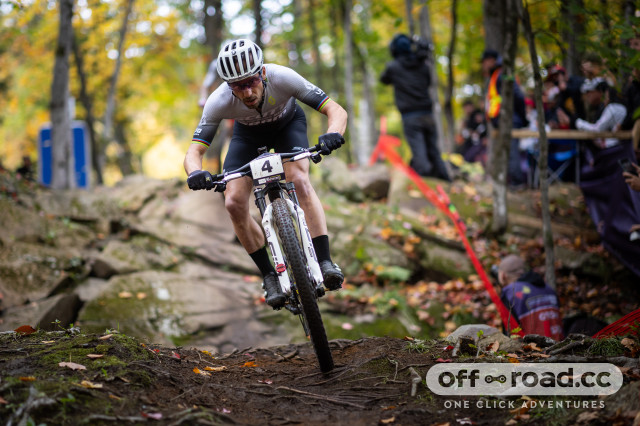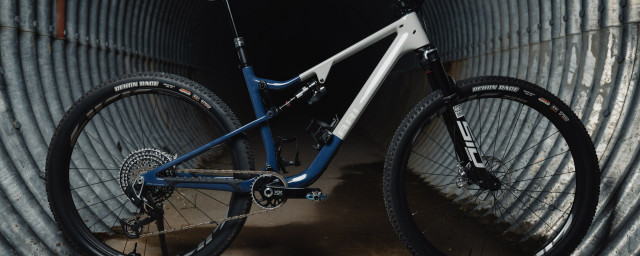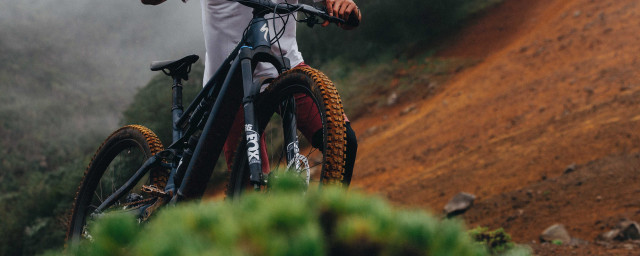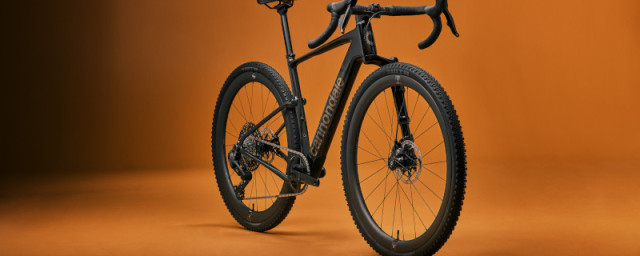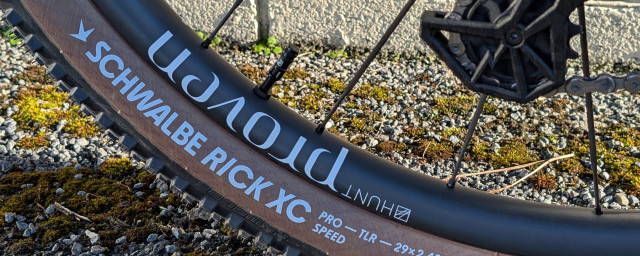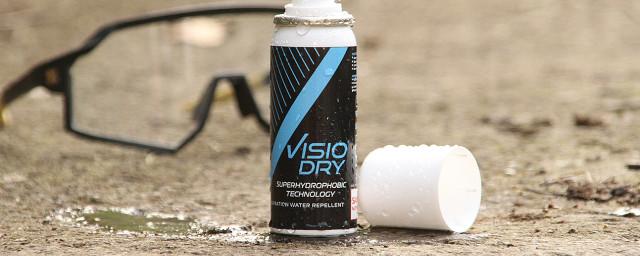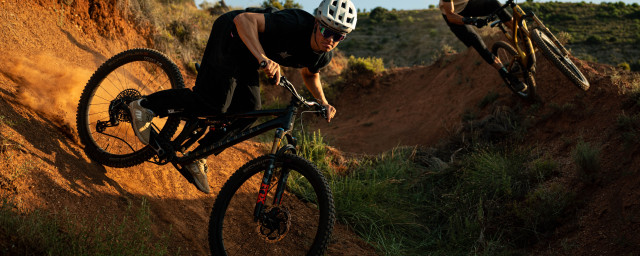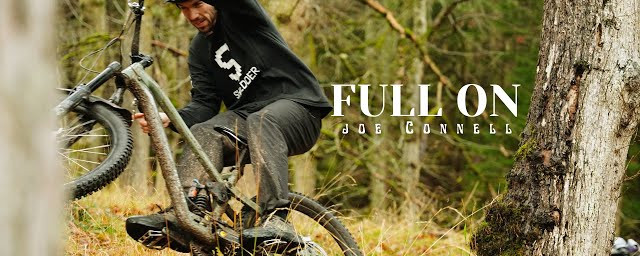On and off the record with Nino Schurter

[Words by Steve Thomas - Images courtest of Scott/SRAM]
Way back in 2003, a young Swiss junior cross-country mountain bike racer named Nino Schurter stepped up from racing the Swiss National Series races after garnering the attention of the then-greatest Swiss XC racer of the era, Thomas Frischknecht, who duly signed his potential successor to his own pro team.
- Mountain Bike Icons – the Nino Schurter story
- Retrospective: the evolution of Nino Schurter’s cross-country race bikes
- Bike check: Nino Schurter's Scott Spark
That team is known today as Scott-SRAM MTB Racing Team, which is still a very close-knit squad, which is run on pure passion and sheer racing brilliance. Some 21 years on, and the great Swiss duo are still together in driving this team.
Many, including Nino himself, assumed that 2024 would mark the end of his long and illustrious career. Though, despite winning at World Cup level, things didn’t play out towards that fairy-tale ending that Nino had hoped for, thus – at 38 years young, he decided to keep the record playing – at least for one more year.
We caught up with Nino as he re-assessed and re-organised ready to make good in 2025.
ORCC: Great news that you are continuing - how and when did you come to that decision?
Nino Schurter: It was a process that happened over quite some time. A lot of it had to do with how I came out of the 2024 season. Even though I had some downs with the Olympics and World Championships, where I was not at my best, I realised that on a good day, I can still win big races – as shown at the World Cup in Val di Sole. Most importantly, I can still feel the fire in myself to keep racing.
ORCC: 2024 was an up-and-down season for you, and started rough – did you believe early on that you could get back to the top?
NS: Yes, because in preparing for the season everything went very well, and I felt ready. Unfortunately, I had some health issues just come on in the week of the start of the World Cup season. But later, in Nove Mesto, I was back on track
ORCC: The Olympics didn't go so well, how do you evaluate that, and how much of a blow was it?
NS: Knowing it was my last Olympics, I really wanted to show once more what I’m capable of. Winning in Val di Sole gave me great confidence, that I’m in the battle for the medals.
I tried very hard to prepare as best as possible for Paris. Retroperspectivly, I know I tried too hard and overdid it in preparation.
ORCC: The World Championships. How was that for you this year, and was the World title being in Switzerland next year already on your mind from then?
NS: After the Olympics, I dug myself into a hole, and I kept digging to get out of it, and that was a mistake.
My self-confidence was gone, and I struggled with the rest of the season. But all of this had nothing to do with next year's World Championship; it’s a new year and a new chance. With the World Championships in Switzerland and the World Cup in Lenzerheide, these are certainly my main focus for 2025.
ORCC: You've proven you can still match and beat the best new and young guys – how much of that comes down to experience?
NS: By now a lot. I know I’m not the only talented guy out there, and also not just the fastest one anymore. I really have to rely on my experience, which once in a while still makes the difference
ORCC: Are the great racing days getting fewer now, have you changed, and how do you work within that?
NS: It’s all part of the process of getting towards the end of my career, and that means that not every race turns out the way I’m hoping. The good thing is, on those days that I have the legs, I’m still at the front of the race. Today the appreciation of such days is much higher than in the past. It’s those good races that keep me going.
ORCC: With so many fast and very young riders coming through now, how do you go about things to counter that and beat them?
NS: Well, all I can do is try to be at my best and hope it’s enough to keep up with the young guns. There is not too much I can improve any more on my side
ORCC: Next year, if you manage to win the World Cup at home (Lenzerheide), is it feasible you will continue or will that be the best way to and time to stop?
NS: This could, potentially, be a dream ending of my cross-country career. By now I take it all race by race.
ORCC: Did you have a plan B for if you stopped this year, would it be stopping all racing or could we see you in marathon, gravel, working in the industry?
NS: I‘m always focusing on plan A.
ORCC: Now the season is over, what happens - holidays, reassessments? Were there any big learnings from the last year, are there things you plan to work on, change or any training shifts?
NS: After a nice holiday in Africa (Namibia), I’m back in training preparing for the next season. Sure, I’m reflecting on the 2024 season in detail and there are some learnings for next year. After all the years of being so successful, I’m certainly not turning things upside down.
I think I made a few smaller mistakes trying too hard at some time preparing for the Olympics. Those mistakes had quite a big impact. But I feel I didn’t do everything completely wrong, and just need some fine-tuning for 2025 – and I’ll be back!





